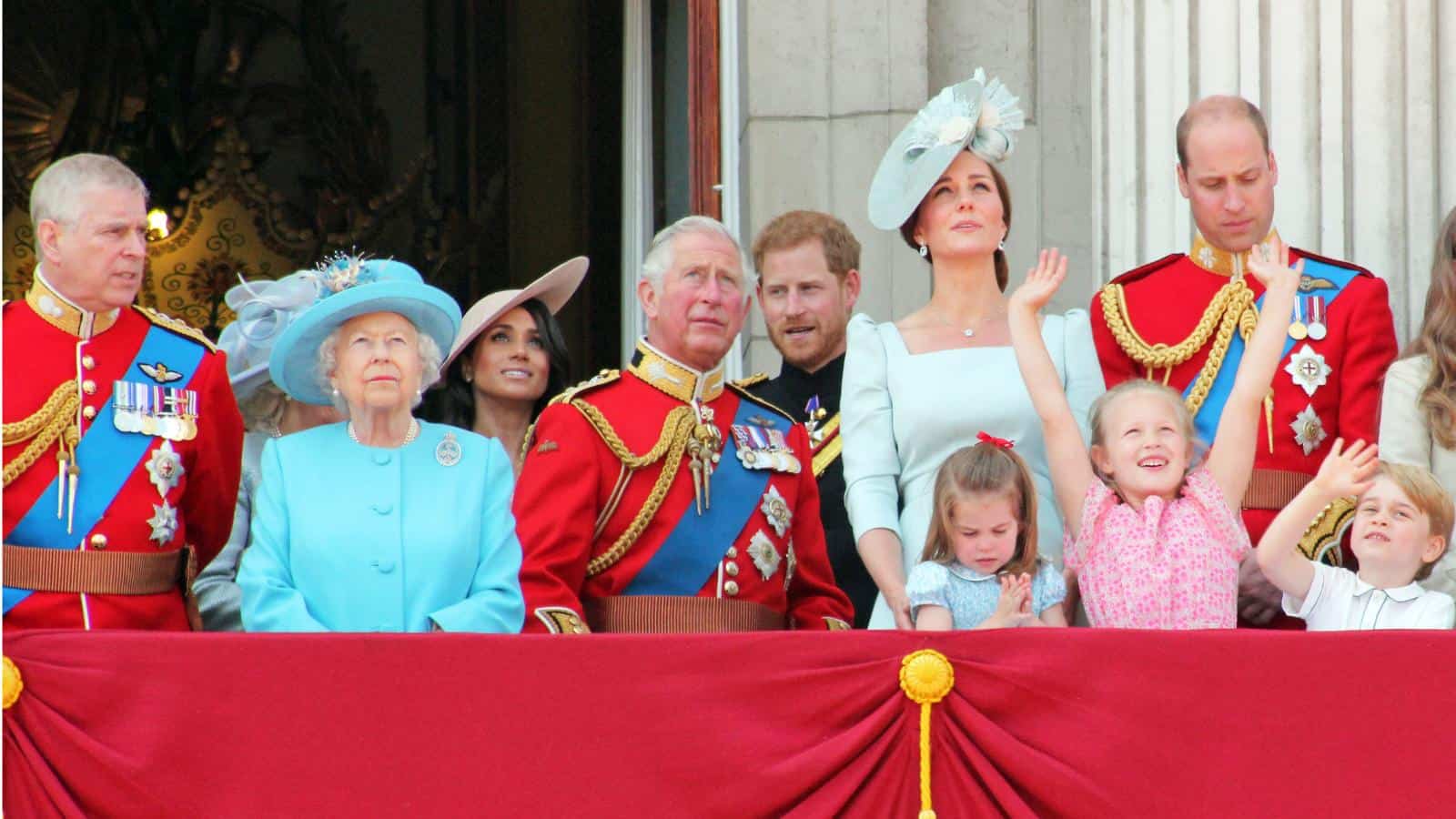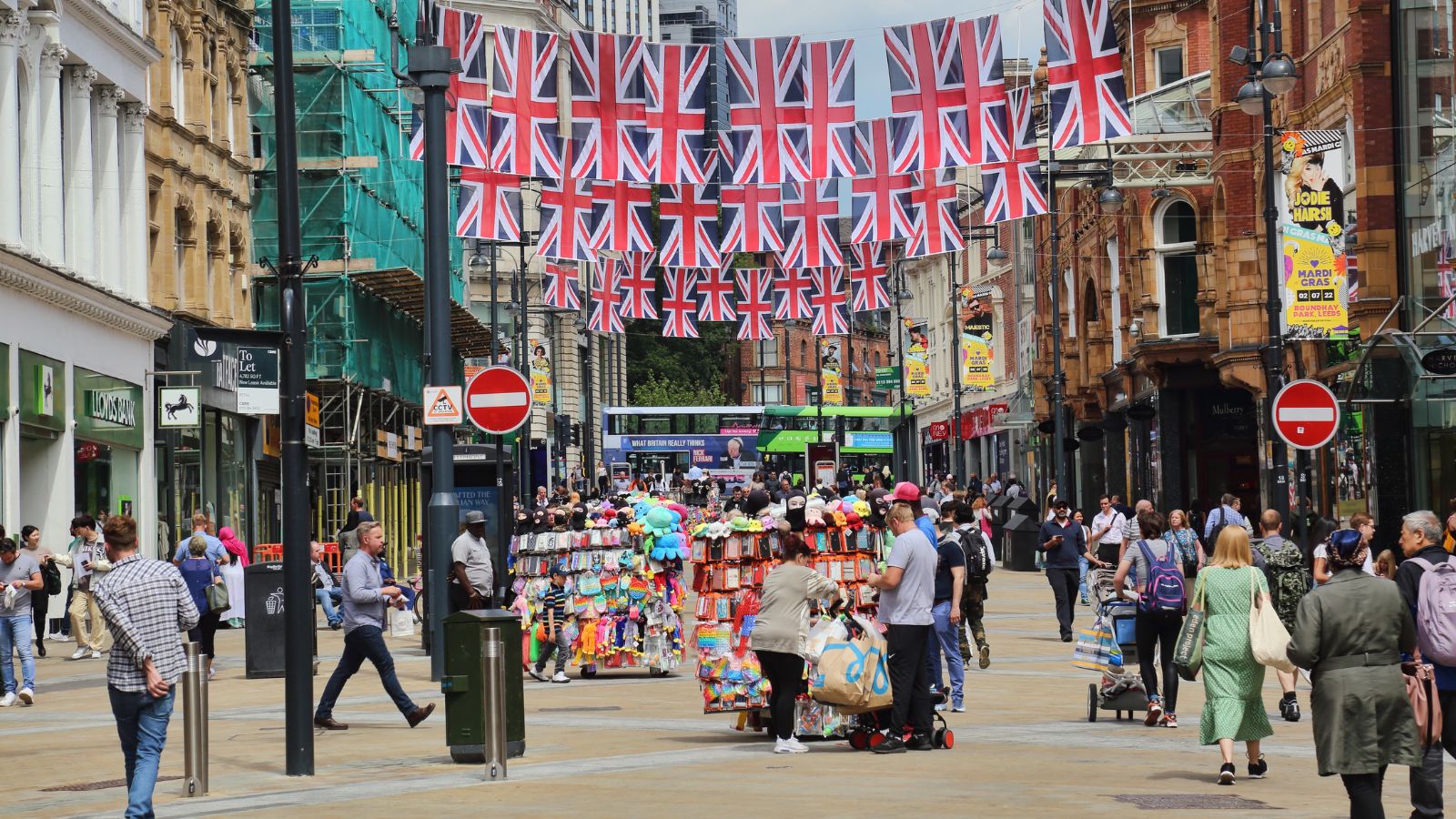Chatting with someone from the UK is usually easygoing, but there are a few conversational landmines you’ll want to avoid. While the British are known for their politeness, certain subjects can make them squirm, roll their eyes, or even (politely) change the topic altogether, so you’d do well to sidestep the following topics.
Brexit

Brexit—the word alone can trigger groans or raised eyebrows, depending on who you’re speaking to. It’s a subject tied to identity, politics, and deeply personal feelings about the UK’s place in the world, and whether someone was for it or against it, it’s still a polarizing topic, even years after the referendum.
The Royal Family

When it comes to the royals, Brits are all over the map, because some adore them and keep up with every royal wedding and drama, while others couldn’t care less. For some, it’s a matter of tradition and national pride, while others might see the institution as outdated.
How Much They Earn

Talking about money is awkward in many cultures, but in the UK, it’s practically taboo, which means asking someone about their salary is considered overly personal. People from the United Kingdom generally prefer to keep their finances private, and many see discussing wealth (or lack thereof) as a bit crass.
The Weather Being ‘Boring’

You might think it’s harmless to poke fun at Brits’ obsession with the weather, but it’s worth remembering that this isn’t just idle chatter for them, because complaining about the rain or marveling at a sunny day is a way to connect. Dismissing weather talk as dull could come across as rather rude.
Colonial History

One thing many Britons would rather not bring up, especially in casual conversation, is colonial history; it’s complicated and tied to issues of power, exploitation, and cultural identity. While some people are willing to discuss it, others might feel defensive or uncomfortable.
Football Rivalries

Mentioning that you support a particular team—or worse, criticizing another—can open the floodgates to an impassioned (and possibly heated) debate. It’s not uncommon for football allegiances to be tied to regional identity, and people take it very seriously, so if you’re not familiar with the ins and outs of the Premier League, it’s probably safer to admire the sport from a distance.
Stereotypes About Tea

Yes, British people love tea—it’s a cultural staple—but constantly joking about how much tea they drink or exaggerating the stereotype can quickly become grating. It’s fine to mention how you enjoy your cuppa or ask for a recommendation, but comments like “Do you carry tea bags everywhere?” can come off as lazy clichés.
Regional Stereotypes

Joking about Northern accents, making sweeping statements about the Welsh, or questioning the Scottish love for haggis can rub people the wrong way. Each region has its own rich history, traditions, and quirks, and residents are often fiercely proud of where they come from.
Their Political Leanings

Politics is a minefield in the UK, much like anywhere else, and between party loyalties and local issues, it’s a topic that often divides people. Asking outright who someone votes for or what their political beliefs are can feel invasive, especially since many Brits prefer to keep their opinions private.
Class

Even casual remarks about someone’s education, neighbourhood, or lifestyle can touch on class dynamics without you realising it. It’s a subtle and nuanced topic that’s better left alone unless you know the person well—and even then, tread carefully, or focus on shared interests rather than potential divides.
Jokes About British Food

British food often gets a bad rap, but mocking it outright is likely to rub people the wrong way; sure, dishes like jellied eels or black pudding might seem unusual, but there’s a lot more to UK cuisine than the old stereotypes. Classics like shepherd’s pie, a Sunday roast, or sticky toffee pudding hold a special place in the hearts of the locals.
Comparing Britain to America

Drawing constant comparisons between the UK and the US might seem harmless, but it can quickly grow tiresome for residents, as these comparisons can come across as a veiled critique—or worse, an assumption that one country is superior to the other. While Brits might enjoy pointing out their own quirks, having someone else do it can feel patronising.
Scotland’s Independence

With strong opinions on both sides of the debate, the question of Scottish independence is a hot-button issue, and emotions often run high. This is why discussing it without fully understanding the complexities can feel disrespectful—unless the subject comes up naturally and you’re prepared to handle it thoughtfully, of course.
Religion

While the United Kingdom is largely secular, religion can still be a personal, sensitive topic, and many who aren’t open about their faith may prefer to keep it private. If you’re asking questions about their beliefs, it might feel intrusive, and remarks about church attendance or religious holidays can unintentionally make it a little awkward.
Personal Relationships With Neighbours

Relationships with neighbours tend to be polite but distant for Britons—friendly chats over the garden fence, not deep personal bonds. Therefore asking someone how well they know their neighbours or digging into stories about disputes can feel overly nosy, forgetting the fact that Brits prefer their privacy.
Drinking Culture

Lastly, the United Kingdom is often associated with a vibrant pub culture and a love for beer or spirits, but it’s important not to generalise or assume that everyone participates in or identifies with these traditions. While pubs are a significant part of social life for many, attitudes toward drinking vary widely, so beware of the stereotype of binge-drinking Brits on a pub crawl.

